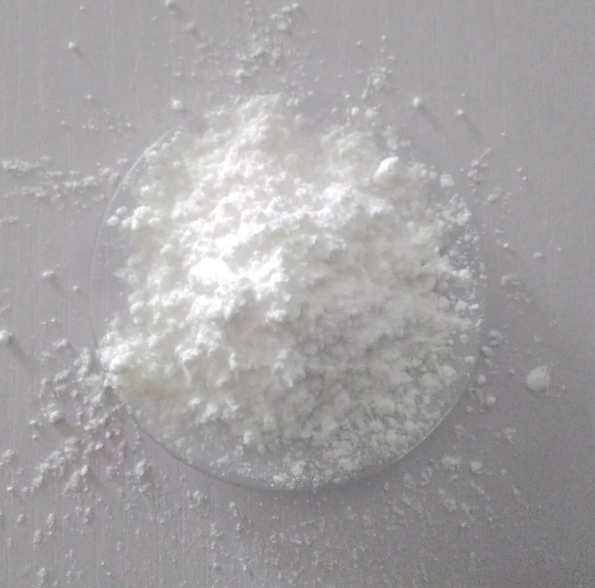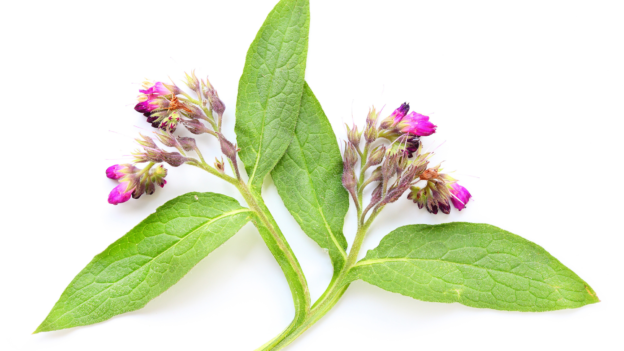One of the keys to success in skincare is to set yourself apart from your competitors. What does your product offer, that other products do not? Some formulators are tempted to add in a wide variety of different additives, all to address one issue or another. That can become expensive and can lead to a formula that is overly complex. Troubleshooting the formula then becomes very difficult because you have dozens of ingredients present. The best additive is one that not many people use, is inexpensive / doesn’t need a high loading percentage, and has a wide variety of skin benefits. Allantoin certainly fits the bill and can be a “secret weapon” for your skincare products. It’s a multi-purpose ingredient that can result in dramatic differences for your customers.
Centuries before the advent of modern medicine, poultices of the comfrey plant were used to treat wounds. It was seen to have a certain healing factor. Today, cosmetic chemists use one of the active ingredients in comfrey (“allantoin”) in skincare. It’s a nature-identical, multi-purpose ingredient that covers so many skin issues that it’s almost a “must-have” in skincare formulations – and yet so few manufacturers use it! It can really help to differentiate your product from your competitors, and is beneficial even at low concentrations, making it very economical.
Allantoin is water-soluble (with extended stirring), and is usually suggested at a concentration of 0.1-0.5%. It is not compatible with oil-based formulations, although it can be suspended in solid balms/body butters. It’s compatible with a wide range of other ingredients (Alpha-hydroxy acids being an exception). Let’s take a look at some of allantoin’s properties.

- It’s a moisturizer, that helps to soothe and hydrate the skin. This makes the skin more flexible. When the skin becomes more hydrated, the skin cells plump up which can lead to a reduction in the appearance of fine lines and wrinkles. Unlike other moisturizers like hyaluronic acid, it can be used in both dry and humid climates to good effect.
- One of its most important properties is that allantoin gently exfoliates the outer layers of dead skin. This reveals the brighter, younger skin underneath. By evening out the skin tone and texture, the complexion becomes smooth and radiant. This is especially useful for skin that has developed calluses, where the allantoin can go to work softening the skin and reducing the raised bumps. Between the keratolytic action (skin-softening) and increased exfoliation, the skin quickly becomes pliable and flakes away.
- Allantoin can act as an anti-inflammatory. This means red, “angry” skin patches can be soothed and irritation can be reduced. Some damaged skin can be almost painful, with your body producing an inflammation response to the damaged area. The allantoin can help to “calm down” the affected skin and result in a lessening of itching.
- The additive can also be used to promote the production of collagen, which is probably why it is so useful in treating wounds. It’s used in some tattoo-aftercare products for this reason and makes a noticeable difference in the speed of healing. While you always have to be very careful with the claims made for cosmetic products (so you don’t cross over into the realm of medicine), your customers will notice a marked difference in the rate of skin repair.
- Allantoin can help to minimize the appearance of large pores and is one of the most effective ingredients for that purpose.
- Finally, allantoin can be useful in anti-ageing formulations. It helps to promote the production of collagen, which is part of the structural aspect of skin that starts to deteriorate. This extra collagen can help the skin to become firmer, plumper, and more bouncy – counteracting the natural tendency for the skin to sag and become shallow, as collagen levels decrease.
One important note: Allantoin can be considered a medicated ingredient (taking a cosmetic product into the realm of medicated cosmetics) if you make any skin-protectant claims. However, if you stay restrained with the scope of your product claims and marketing then allantoin can be a valuable tool in your formulating toolbox. It’s hard to find an ingredient that is inexpensive, useful at low concentrations, compatible with most ingredients, and which performs so many useful functions. Allantoin ticks all of those boxes, and I recommend that you try it in your next water-based or emulsion-based product. You won’t be disappointed!

